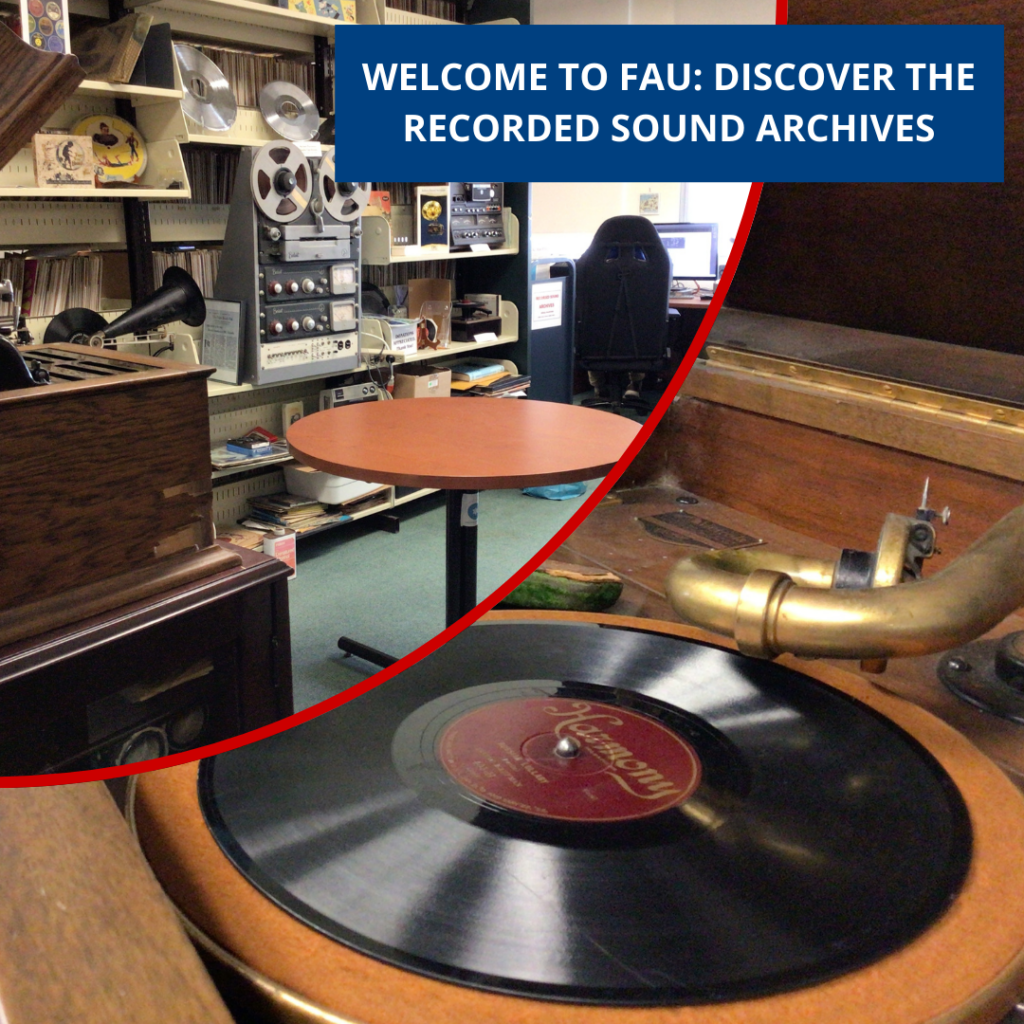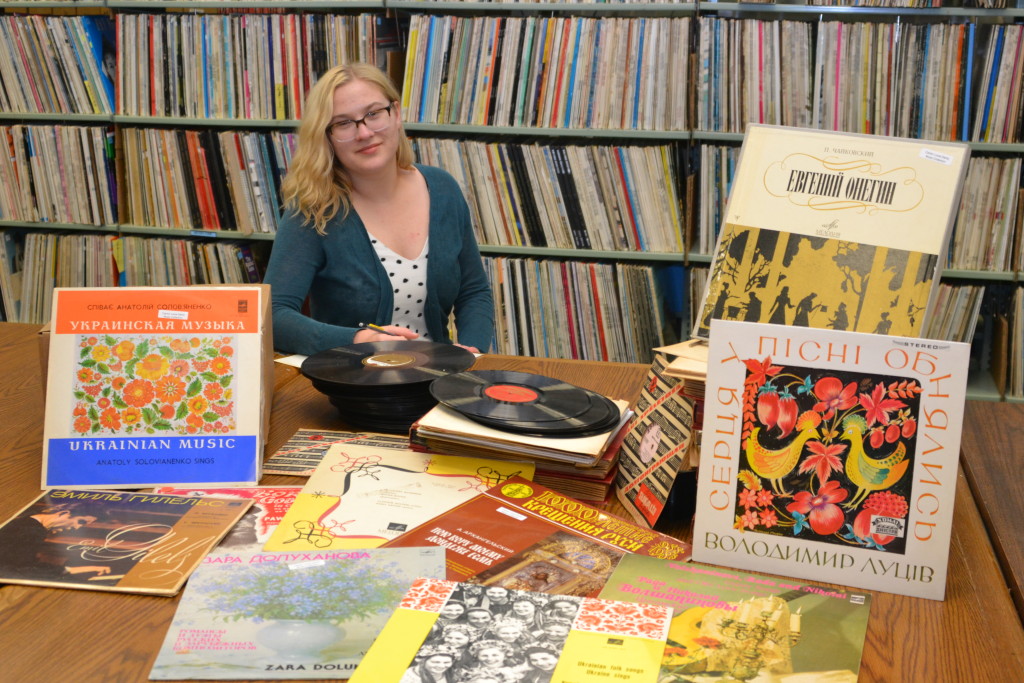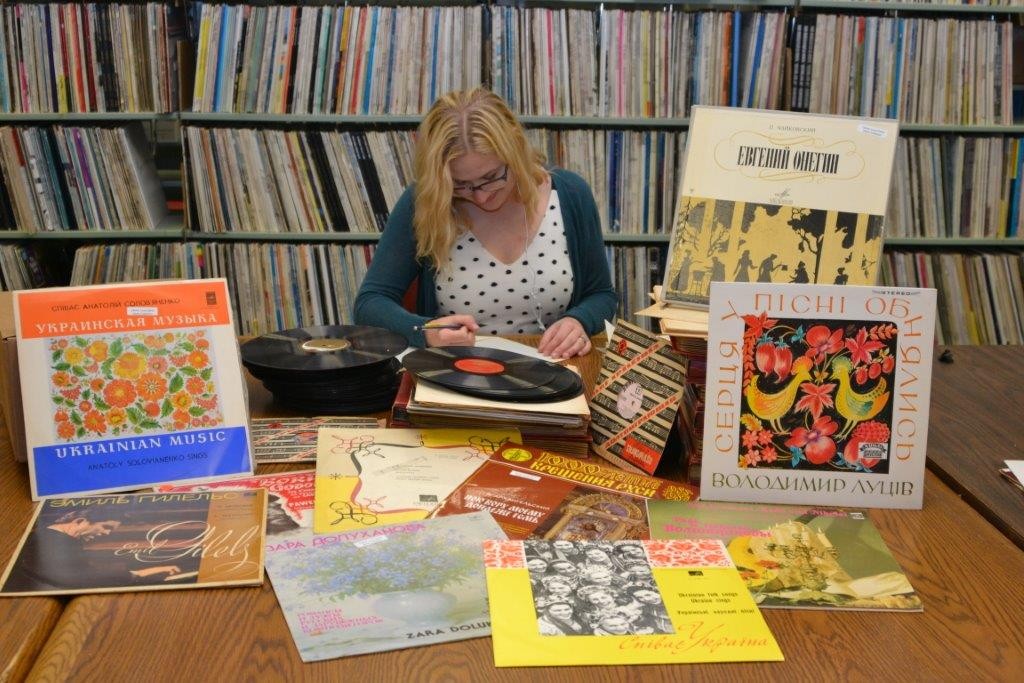Welcome to FAU: Discover the Recorded Sound Archives
Welcome to Florida Atlantic University, new Owls! As you embark on this exciting journey, you’re not just joining a university but becoming part of a vibrant community with endless opportunities for growth, exploration, and discovery. From the bustling campus life to the serene beaches nearby, FAU offers a unique environment where academic excellence meets a supportive, diverse community.
As you settle in and navigate your new life here, you’ll find FAU full of hidden gems—one in the Wimberly Library on the Boca Raton campus. I’m talking about the Recorded Sound Archives (RSA), a part of FAU Libraries that you might not have heard of yet but one that you’ll want to know about.
What is the Recorded Sound Archives?
The Recorded Sound Archives, or RSA, is more than just a collection of old records. It’s a treasure trove of cultural history preserved through sound. Established in 2002, the RSA began as a project dedicated to preserving Jewish music. Over the years, it has expanded to include various sound recordings, including Jazz and early American vintage recordings. Today, the RSA holds over 150,000 recordings across three collections, helping researchers worldwide.
Why Should You Care?
You might be wondering, “Why should I care about a bunch of old records?” The answer is simple: these recordings are more than just music; they are snapshots of history. Whether you’re studying music, history, or cultural studies or even love exploring the past, the RSA offers a unique way to connect with the stories and voices of those who came before us. Imagine hearing a jazz performance from the 1920s or a radio broadcast from World War II—these are the experiences the RSA can offer.
How Can You Get Involved?
The RSA isn’t just for researchers or history buffs—there are plenty of ways to get involved as a new student. The archive regularly hosts exhibits that are open to all students. These are great opportunities to learn more about the archive, meet like-minded peers, and contribute to the preservation efforts.
If you’re interested in working with the RSA, we offer an ongoing volunteering opportunity. Our current opportunity involves data entry, which helps us make more recordings discoverable to our researchers. This is a fantastic way to gain hands-on experience in archival work and more—skills that can be valuable no matter your field.
Visit Us & Get a Tour!
The next time you’re in the Wimberly Library, take a moment to visit the RSA. Whether you’re dropping by for a quick look or planning to spend hours exploring the collections, the RSA staff are always happy to welcome new faces and share their passion for preserving sound history.
Welcome again to FAU, and here’s to a fantastic year ahead! Remember, the RSA is here for you—whether you’re looking to dive deep into research, discover new interests, or take a break and listen to the sounds of the past.
Go Owls!


